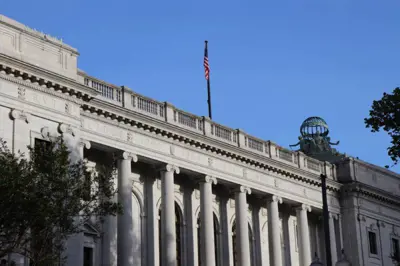
A new appeal of FDA marketing denial orders (MDOs) issued to six small vapor manufacturers challenges the agency’s marketing authorization process on grounds that were not decided in the Supreme Court Triton Distribution decision.
If the Fifth Circuit Court of Appeals rules against the FDA, as it did in Triton, the FDA is likely to ask the Supreme Court once again to validate its premarket tobacco application (PMTA) review process.
Every surviving U.S. vape manufacturer will be watching intently as the Fifth Circuit considers new questions that could become lynchpins in their own challenges to the FDA.
Six small manufacturers pin their futures on the legal process
The six companies now petitioning the court for review all received MDOs between May 2024 and June 2025, and filed petitions for review in the Fifth Circuit within 30 days, as required by the Tobacco Control Act (TCA).
The six manufacturer petitioners are:
American Vapor Company, LLC
Breeze Smoke, LLC
Elite Brothers, LLC
Lead by Sales, LLC (doing business as White Cloud Cigarettes)
Vapermate, LLC
Vertigo Vapor, LLC (doing business as Baton Vapor)
Of the six petitioners, only American Vapor Company is located within the jurisdiction of the Fifth Circuit, but the other five manufacturers have recruited retail co-petitioners that are located within the circuit. (The issue of “venue shopping”---manufacturers using local retailers as co-petitioners to establish MDO appeal jurisdiction—was settled by the Supreme Court earlier this year, and is allowed.)
Most of the cases were held in abeyance by the court pending the Supreme Court decisions in Triton and the venue shopping case. After the abeyance was lifted, the Fifth Circuit consolidated the cases, since all six petitioners share the same attorneys and are challenging largely on the same grounds.
The companies are represented by Azim Chowdhury and Eric Gotting of Washington D.C.-based law firm Keller and Heckman.
Will new legal questions lead to a different outcome?
The Supreme Court ruling in Triton narrowly addressed only the issues from the Fifth Circuit’s decision that the FDA raised in its appeal. The justices remanded the case to the appeals court to reconsider the FDA’s refusal to consider Triton and Vapetasia’s marketing plans. Following the April Supreme Court decision, the FDA in July voluntarily stayed the Triton and Vapetasia PMTAs (and those of five other companies) and moved them back into review to consider the marketing plan issue.
But aside from marketing plans, other issues remain unaddressed by the Supreme Court. The new consolidated MDO appeal brings those questions front and center.
The Supreme Court specifically declined to address the question of whether the FDA should have developed a flavored vape product standard through notice-and-comment rulemaking, as required by the TCA and the Administrative Procedure Act (APA).
“We did not grant certiorari on that question,” wrote Justice Samuel Alito in the Triton ruling, “and without adequate briefing, it would not be prudent to decide it here.”
This may be the biggest unaddressed issue, and the one that would affect the largest number of businesses receiving FDA denial orders. The FDA summarily rejected over a million PMTAs for non-tobacco-flavored vape products based on its own internal standard that required certain kinds of “comparative efficacy” studies to prove a specific flavored product was better able to help adults quit smoking than a tobacco-flavored product.
The “comparative efficacy” requirement itself is a product standard, say the six petitioners, creating what is effectively a flavor ban.
The FDA has still never authorized a vape product in a flavor other than tobacco or menthol, but the agency insists it has not banned flavors. The petitioners say the FDA’s shadow ban of flavored vapes violates the intent of the TCA and APA, as well as the Supreme Court’s “major questions doctrine.”
Additionally, manufacturers were not given fair notice that such a comparative efficacy study would be required to obtain authorization for menthol-flavored products. The comparative efficacy standard was applied to menthol product PMTAs only after internal FDA memos demanded reviewers deny menthol products that didn’t meet the unpublished standard. Before that, menthol products were treated differently than products in other non-tobacco flavors.
The TCA—which governs the PMTA process—says each application is supposed to be judged on the totality of the evidence that the product, if authorized, will be “appropriate for the protection of public health.” The petitioners say PMTAs were not assessed individually, considering all available evidence, but rather were dismissed by FDA employees using a literal box-checking exercise.
The FDA ignored evidence from its own survey data that the petitioners' products do not appeal to youth. The annual National Youth Tobacco Survey (NYTS), which is conducted jointly by the FDA and Centers for Disease Control and Prevention (CDC), is frequently used as support for FDA actions against vape manufacturers, but in this case, should have been considered as evidence in favor of the six petitioners. None of their products has ever been cited in product-specific survey responses by 8th- 10th- or 12th-grade students taking the survey.
The FDA told manufacturers before applications were submitted that actual sales data and national survey results would help determine risk to youth, but chose to turn a blind eye to its own data when assessing youth usage risk for the petitioners' products.
More court battles, more raids, more seizures
After President Donald Trump promised during his campaign that he would “save vaping,” there was hope among small vape manufacturers that a Trump FDA would stop issuing new MDOs, postpone pending legal disputes, and work to build a reasonable PMTA pathway that would allow small American e-liquid producers to survive.
That didn't happen, and the expectation now is the opposite. Trump FDA Commissioner Martin Makary has proven to be a rabid opponent of vaping, and there is no belief he will moderate his opinions—and certainly no expectation he will ever support a simpler road to FDA authorization.
That means more police raids on distributors, more customs seizures, more public lies about a youth epidemic—and even more court battles.
